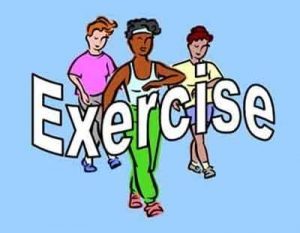- Home
- Editorial
- News
- Practice Guidelines
- Anesthesiology Guidelines
- Cancer Guidelines
- Cardiac Sciences Guidelines
- Critical Care Guidelines
- Dentistry Guidelines
- Dermatology Guidelines
- Diabetes and Endo Guidelines
- Diagnostics Guidelines
- ENT Guidelines
- Featured Practice Guidelines
- Gastroenterology Guidelines
- Geriatrics Guidelines
- Medicine Guidelines
- Nephrology Guidelines
- Neurosciences Guidelines
- Obs and Gynae Guidelines
- Ophthalmology Guidelines
- Orthopaedics Guidelines
- Paediatrics Guidelines
- Psychiatry Guidelines
- Pulmonology Guidelines
- Radiology Guidelines
- Surgery Guidelines
- Urology Guidelines
Frequent exercise can improve sperm quality- Study

Moderate Intensity Continuous Training (MICT) for three and five times a week is linked to improved sperm count and other measures of sperm quality in just a six months, reveals a study.
The study was published in the journal Reproduction.
Researchers from Urmia University in Iran found that men exercising moderately and continuously improved their sperm quality more than those following popular intensive exercise programs like High intensity interval training (HIIT).
The current advice for men, who are seeking to improve their chances of conceiving include combining healthy eating with regular exercise while giving up smoking and reducing the intake of alcohol.
"Our results show that doing exercise can be a simple, cheap and effective strategy for improving sperm quality in sedentary men," said lead study author Behzad Hajizadeh Maleki.
"However, it's important to acknowledge that the reason some men can't have children isn't just based on their sperm count. Male infertility problems can be complex and changing lifestyles might not solve these cases easily," Maleki added.
However, the link between exercise and sperm quality is not definitely proven.
The team set out to investigate whether the time men spend exercising and the intensity at which they work out have an impact on sperm quality.
They investigated 261 healthy men aged between 25 and 40.
They assigned each participant to one of four groups: moderate intensity continuous training (MICT), high intensity continuous training (HICT), high intensity interval training (HIIT) and a control group that did not exercise.
MICT and HICT exercises consisted of running on a treadmill for half an hour and one hour for three to four days per week, respectively.
HIIT consisted of short one-minute bursts of sprinting on a treadmill, followed by a one minute recovery period, repeating between ten to fifteen times. These routines were followed during a 24-week period.
Semen samples were taken before, during and after the different exercise regimens to assess the men's semen volume, sperm count, morphology, motility, levels of inflammatory markers and their response to oxidative stress.
The findings reveal, after completing the 24-week program, the MICT exercise group showed the biggest improvements in sperm quality and also maintained these benefits for longer.

Disclaimer: This site is primarily intended for healthcare professionals. Any content/information on this website does not replace the advice of medical and/or health professionals and should not be construed as medical/diagnostic advice/endorsement or prescription. Use of this site is subject to our terms of use, privacy policy, advertisement policy. © 2020 Minerva Medical Treatment Pvt Ltd